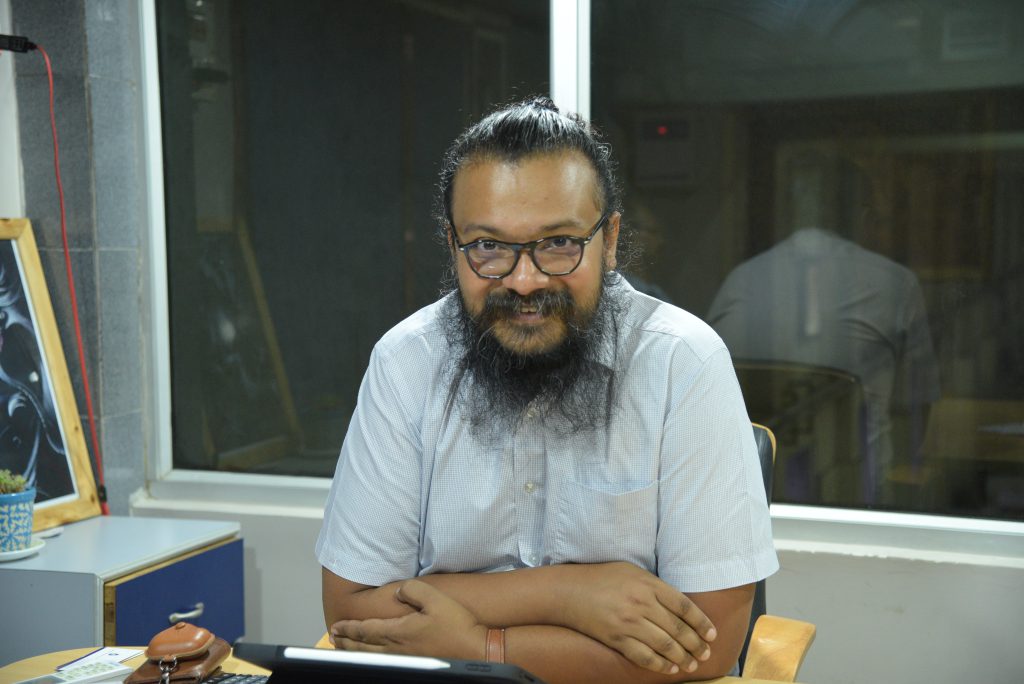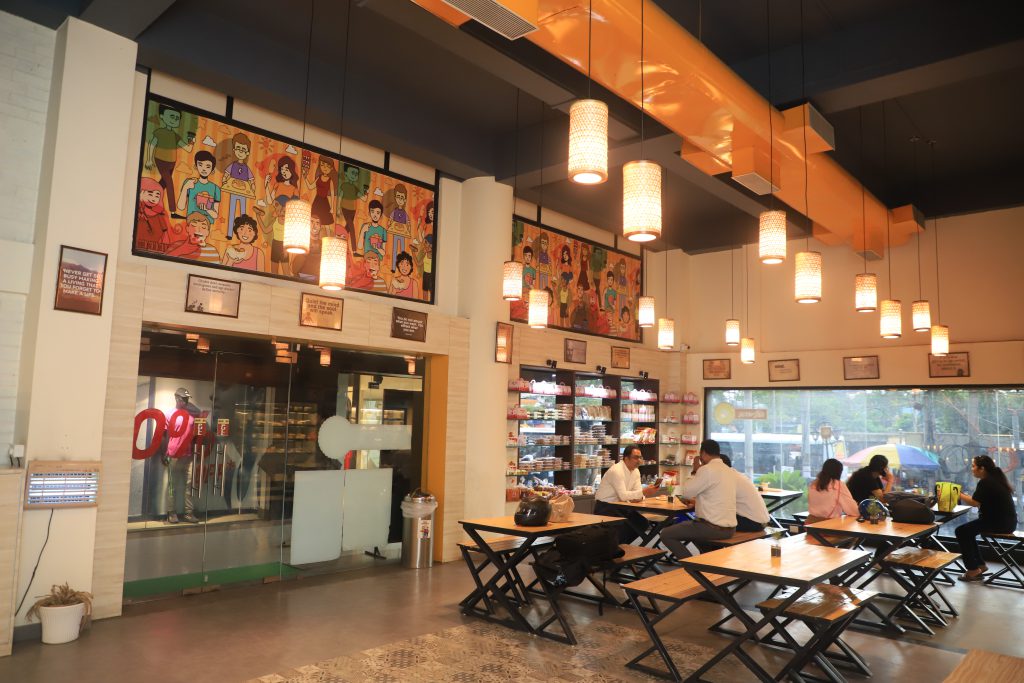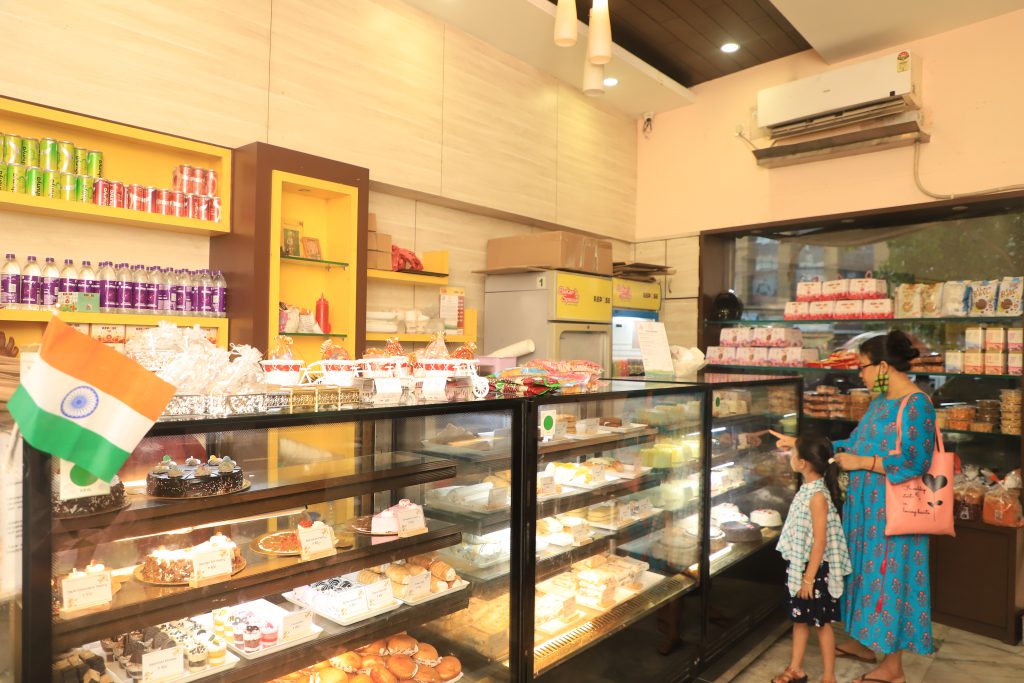What makes a 90-year-old business in Assam remain strong and move ahead amidst all the challenges? "Business is what we do, not something that necessarily belongs to us," says Samrat Deka, Director at SRD Group to Business-Northeast in an hour-long conversation on the road ahead for the group. Deka elaborates on the North East's potential in the food processing sector and as a manufacturing hub.

Repose is also launching mithais in Guwahati this October.
Q. Tell us about the journey of SRD Group so far. It started in 1931 with a small tea stall.
Deka: We had a very humble beginning. My grandfather, Sunandaram Deka (Xunandi Mahajan) started with a small tea stall in Mongoldoi. The then Principal of Mangaldoi Girls High School was a regular to the stall, which was then nameless. One day he came with a placard with 'Repose' written on it, meaning the place to rest and revive.
From the stall, he moved on to rice trading, after taking interest in the conversation of the traders who would visit his tea stall. Eventually, he set up a large distribution business of food grains. And with the tea stall, he also added a bakery sometime in the 1940s, selling handmade products.
Our actual industrial venture started in 1988 when we started the flour mill. It was like a backward integration because we were already selling a lot of atta and maida to the local bakeries by then.
My grandfather lived till 1996, and his children had carried forward the businesses since then. The old bakery was modernised in 1994; I joined the family business in 1998 and my first venture was to get involved in Guwahati.
SRD Group got the big break with GlaxoSmithKline plc to manufacture Horlicks in Mangaldoi. When it was set up the project was the first Sigma 6 compliant facility; it became the showcase facility or plant for Southeast Asia. We achieved a benchmark production, bringing down production costs and raising efficiencies consistently. This led us to tie up with five other multinational companies. Meanwhile, our own businesses also grew.

Q. SRD group is segmented into different verticals? Would you elaborate these?
Deka: We have five verticals. In the manufacturing segment, there are three verticals- the businesses that we own completely and do the marketing as well; businesses that are purely contract manufacturing where we have invested 100 percent; and where we have a joint venture with the mother companies.
The other two verticals are trading and real estate. All have evolved organically.
It is organized in that manner for the benefit of organizations who wish to invest in our businesses. Utilisation of public funds plays a big role in scaling up businesses. The segregation helps potential investors to understand better. Otherwise, 99 percent of SRD Group is owned by the family.
For operational purposes, there is no distinction. The individual companies in the group are either Pvt. Ltd or partnership companies.
Q. Your family has been in the business for over 90 years now. How has the present generation been able to carry over the mantle from the earlier generations?
Deka: I joined the family business when I was about 21 years. My younger brother also joined the business 6 years back and we are very much involved in everything.
My kids are still very young. But my daughter takes a deep interest in chocolatering. I hope she retains her interest, but we have made it very clear that it is not a mandate for our children to join the family business if they are not interested, and only if they are competent and motivated.
But the business survived three generations because 'business is what we do, not something that necessarily belongs to us'. Since my grandfather's time, all family members who have been involved in the business have been salaried. Like other companies, even our traveling and other necessary expenses are taken care of and the rest we are all salaries. We don't really take portions from the business. Even in terms of our lifestyle, we do not engage with more than 5 percent of our resources.
That has allowed us to reinvest in the business in such a way that we can keep growing. It is also essential to remain grounded.
Q. What is the present production volume in all your facilities?
Deka: We have a 900 tonnes production capacity per month of Horlicks, Britannia we have about 700 tonnes of production capacity per month; for ITC we produce 700 tonnes of cake every month, it is the largest facilities in the entire country. For juices, we make around 4 lakh trays monthly, each tray having 24 pouches; the biscuit factory has 2000 tonnes producing capacity; in popcorn, we have a varied number of products.
Other than the juice, a lot of the other production facilities took a hit during the COVID-19 pandemic. Last year we were about 70 to 75 percent of our production units, but last month's numbers are good. We are gradually returning to full capacity, presently hovering over somewhere between 80 to 85 percent of the units.
Q. Are the raw products from your units available in the NE?
Deka: Raw materials for most products manufactured in our factories are procured from outside the NE. However, we are trying to localise the supply chains. We are trying to source locally grown fruits for our juice concentrates, as well as local cereals and seeds for nutritional snacks.
COVID-19 has been an eye opener for everybody and has given the thrust to look for local supply chains.
Q. Repose use to sell even non-vegetarian products? Why did you limit yourself to vegetarian goods only?
Deka: It was purely a business strategy. While trying to expand our Repose factory, we realised that to get the kind of certification we comply with in our larger factories, we have to set up two separate factories for our vegetarian and non-vegetarian products. Because we are already 90 percent vegetarian, making big investments for just 10 percent of the products wasn't feasible.

We also observed a trend towards healthier food in the global food processing market. It also makes sense ecologically as the ecological footprint of meat is very high. We felt that in 20-30 years, being a vegetarian brand meets our economic objectives.
Q. There is this issue of whether the Northeast can become a manufacturing hub, especially in food processing. What is your take on this?
Deka: The food processing sector in the NE is still at a very nascent stage. SRD Group had a very narrow threshold when it began. Although there is a lot of growth that is happening, but there is massive headroom yet. At least for the next 20 to 30 years, there are tremendous possibilities for the food processing industry to move ahead.
Under the Act East Policy, there has been a progressive movement. If the borders open up, there are enormous possibilities for the NE to be a manufacturing hub.
Also, there is this movement to look at qualitative aspects of food rather than just the quantitative aspect. FSSAI is looking into grading foods as per their micronutrient profile. In that case, NE which is by default producing organic food stands great potential. It is true for all the local products grown here.
If we had testing and R&D facilities in the NE to objectively validate these qualities, then our products will automatically stand superior. SRD Group is looking to set up such a facility.
Q. How many retail outlets do you have across the Northeast? Are you planning to expand further?
Deka: Repose is primarily in Guwahati and Mangaldoi, although we send a lot of our products to bakeries in other districts nearby. We have expansion plans to spread across the state, but not exploring going outside Assam as of yet. We firmly believe that unless we saturate in our immediate vicinity, there is no point considering outside.
Q. With the world changing, what new areas is your company willing to venture into?
Deka: We are in the midst of attempting the biggest venture we had done. It is my uncle, Anupam Deka’s dream project. SRD Group is constructing a mini food park in Mangaldoi. It entails setting up five different facilities in a 10-acre plot.
The plot has been in development since November 2021. We have laid the foundation for a tetra pack manufacturing facility, which will be the most advanced in the country. Under the Ministry of Food Processing’s Sampada scheme, we have applied for two factories- a flour mill, about four times the size of our current mill, and a bread manufacturing unit. The other two will be associated with locally grown cereals, seeds, and fruits.
All these will be up in the next three years.
One thing most people aren’t aware of is that Repose is originally a mithai brand before we ventured into bakery business. We have been selling mithai in Mangaldoi but never really could do that in Guwahati. But this October my brother will be launching our mithais in Guwahati as well; will be available in all our stores.
And by the end of September we will be starting a Repose store in the LGBI Airport. We have also collaborated with Local Foods (located in City Centre) to introduce Assamese traditional dishes like gura khando, ponta bhat, doi chira, etc along with other NE cuisines. And these will also be available at the Guwahati airport from September.
Pre-COVID we employed about 4000 people which got reduced to 3400 during the pandemic. But now we are back to the old numbers and with the new ventures, we are looking to employ at least 2000 more people.
Q. Any advice for the entrepreneurs and the new generation looking into food processing?
Deka: There is no shortage of ideas or intelligent people, but a shortage of people who can implement them. A successful business is all about ‘99 percent perspiration and only 1 percent inspiration'. So conceive a great idea, then get on the ground and deploy. You have to work with your hands. Get out in the sun to be successful.
ALSO READ: Famous Burger Singh expanding in Northeast and West Bengal